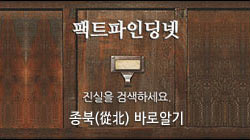"GOD IS DEAD"
〈The morals and values of Western man derive from religious beliefs that he is ceasing to hold. He therefore needs to reevaluate his values.〉
Friedrich Nietzsche(1844-1900) came from a line of Protestant churchmen: his father and both his grandfathers were Lutheran ministers. His school and university studies were based on the classics: so brilliant was he academically that he became a full professor in his middle twenties - an almost unheard of thing. But he never formally studied philosophy. What turned him into a philosophy was the reading of Schopenhauer. In imitation of Schopenhauer he gave up an academic career and lived a life of solitude and simplicity, much of it spent wandering in Switzerland and Italy. Over a 16-year period he poured out his writings in comparative obscurity. Among those of his books that are now best known are The Birth of Tragedy (1872), Human All Too Human(1878), Beyond Good and Evil (1886), The Gay Science (1887), The Genealogy of Morals (1887), and Thus Spake Zarahthustra (1891).
Living to the Full
As a young man, in addition to being a disciple of Schopenhauer, Nietzsche fell deeply under the spell of the composer Wagner. The two men became personal friends, in spite of the fact that Wagner was old enough to be Nietzsche's father. However, Nietzsche eventually established his independence by rebelling against both Wagner and Schopenhauer, and he produced some famous anti-Wagner polemics in two books, The Case of Wagner (1895), and Nietsche versus Wagner (1895). Tragically, when he was still only in his middle forties he collapsed into mental illness, an illness almost certainly brought on by tertiary syphilis. He was to remain hopelessly insane until his death in 1900; so although his reputation became international during the course of the 1890s he himself was oblivious of the fact.〈Bryan Magee, The Story of philosophy〉
“神은 죽었다”
〈서양인의 도덕과 가치는 그가 유지하기를 끝내고 있는 종교적 신앙으로부터 유래한다. 그러므로 서양인은 자기의 가치를 재평가할 필요가 있다.〉
Friedrich Nietzsche는 프로테스탄트 성직자 가문 출신이었다:그의 아버지와 조부와 외조부 모두 루터교 목사였다. 그의 초중등학교 및 대학의 교육은(studies) 고전에 근본을 두었었다:그는 학문적으로 너무나 우수하여 20대 중반에 정교수가 되었다―이것은 거의 전대미문의 일이었다. 그러나 그는 철학을 정식으로 공부한 적은 없었다. 그를 철학으로 방향을 바꾸게 한 것은 Schopenhauer를 읽은 것이었다. Schopenhauer를 모방하여 그는 대학교수의 직을 그만두고 고독하고 소박한 삶을 살았으며 생애의 많은 부분을 스위스와 이탈리아를 輾轉(전전)하며 보냈다. 16년 이상의 기간 동안 그는 비교적 무명의 상태에서 작품을 쏟아 냈었다. 오늘날 가장 잘 알려진 책들 가운데는 The Birth of Tragedy(비극의 탄생:1872), Human All Too Human(인간적인, 너무나 인간적인:1878), Beyond Good and Evil(선과 악을 넘어서:1886), The Gay Science(즐거운 과학:1887), The Genealogy of Morals (도덕의 계보:1887), and Thus Spake Zarahthustra(자라투스트라는 이렇게 말하였다:1891)이 있다
마음껏 사는 것
젊을 때, Schopenhauer의 제자에 보태서 Nietzsche는 작곡가 Wagner의 마력에 푹 빠져 있었다. Wagner가 Nietzsche의 아버지가 될 만큼 매우 나이가 많다는 사실에도 불구하고 두 사람은 개인적인 친구가 되었다. 그러나 Nietzsche는 Wagner와 Schopenhauer 두 사람에게 반역함에 의해서 마침내 독립을 확립하였고 The Case of Wagner(1895)와 Nietsche versus Wagner(1895) 두 저서에서 유명한 反-Wagner 논쟁의 논문을 생산하였다. 불행하게도, 아직 겨우 40대 중반인데도 3기 매독에 의해서 거의 확실히 생기는 병인 정신병으로 쓰러졌다. 그는 1900년 사망할 때까지 절망적인 (치유의 가능성이 없는) 정신병 상태에 있었다; 그래서 비록 1890년대를 거치면서 그의 명성은 국제적이 되었지만 그 자신은 그 사실을 모르고 있었다(oblivious: 감지하지 못하는, 건망증이 있는).
* 해설
세계적인 역사학자인 Francis Fukuyama는 그의 新刊 《정치질서의 기원(The Origins of Political Order)》에서 국가가 유능하지 않으면 민주주의나 시장이 번창할 수 없다고 하였다. 일본과 한국이 지난 200여 년간 세계에서 유일하게 후진국에서 선진부국으로 용오름할 수 있었던 것은 두 나라 모두 유능한 국가(competent state)였고, 유능한 국가만이 안정되고 조화롭고 번영하는 사회를 창출하고 유지할 수 있다고 역설했다.
일본의 ‘明治維新(명치유신)’과 한국의 ‘10월 유신’(朴 대통령 통치 기간 전체를 유신시대로 간주해도 무방할 것이다)은 유능한 국가를 만들기 위한 개혁이었다. 한국과 일본은 각기의 유신을 통해서 서구와 어깨를 겨룰 수 있는 유능한 국가를 만들었고 이것이 양국을 선진부국의 반열에 들게 한 결정적인 요인인 것으로 추정된다. 세계에서 유일하게 서구의 소득수준으로 수렴해간 두 나라가 유신의 역사를 공유한다는 것은 우연의 일치만은 아닌 것 같다.
朴正熙 대통령이 위대한 것은, 일본은 한국보다 월등하게 유리한 조건에서 朝野(조야)가 합심하여 명치유신을 실행하였지만 朴 대통령이 처한 상황은 달랐다는 것이다. 그는 극한의 빈곤과 6·25전쟁으로 폐허가 된 나라에서, 세계에서 가장 가난한 나라에서, 민주주의 근본주의자들과 좌익들의 격렬한 저항을 받으며, 정치적으로 미국의 끊임없는 견제에 시달리면서, 더욱이 세계에서 가장 호전적인 깡패국가 북한의 끊임없는 도발을 받아가면서, 성리학에 중독된 위선적인 지식인들의 비판의 화살을 맞아가면서, 빈곤의 질곡에서 풀이 죽어 있던 민중의 혼을 일깨우며, 세계 역사상 유례가 없을 정도의 경제적 기적을 창출하였다. 그는 불가능에 과감하게 도전하여 위대한 성공을 이룩한 초인이었다. 그는 Nietzsche가 말한 “상상력이 풍부하고 모험적이고, 창조적이고, 담대하고, 용기 있고, 용감한” 초인이었다. (계속)













 朴承用
朴承用







 트위터
트위터 페이스북
페이스북 미투데이
미투데이 요즘
요즘 네이버
네이버































